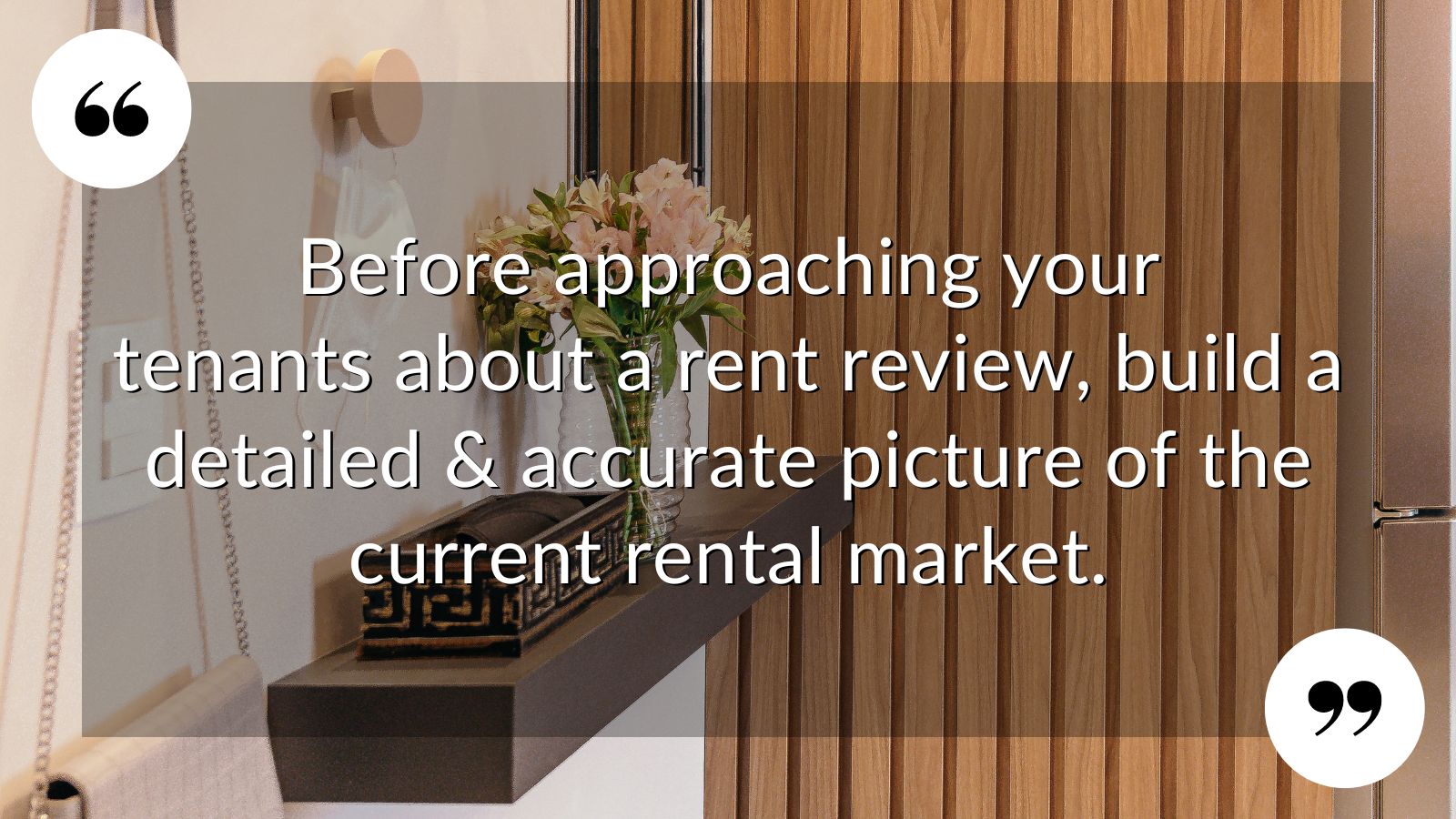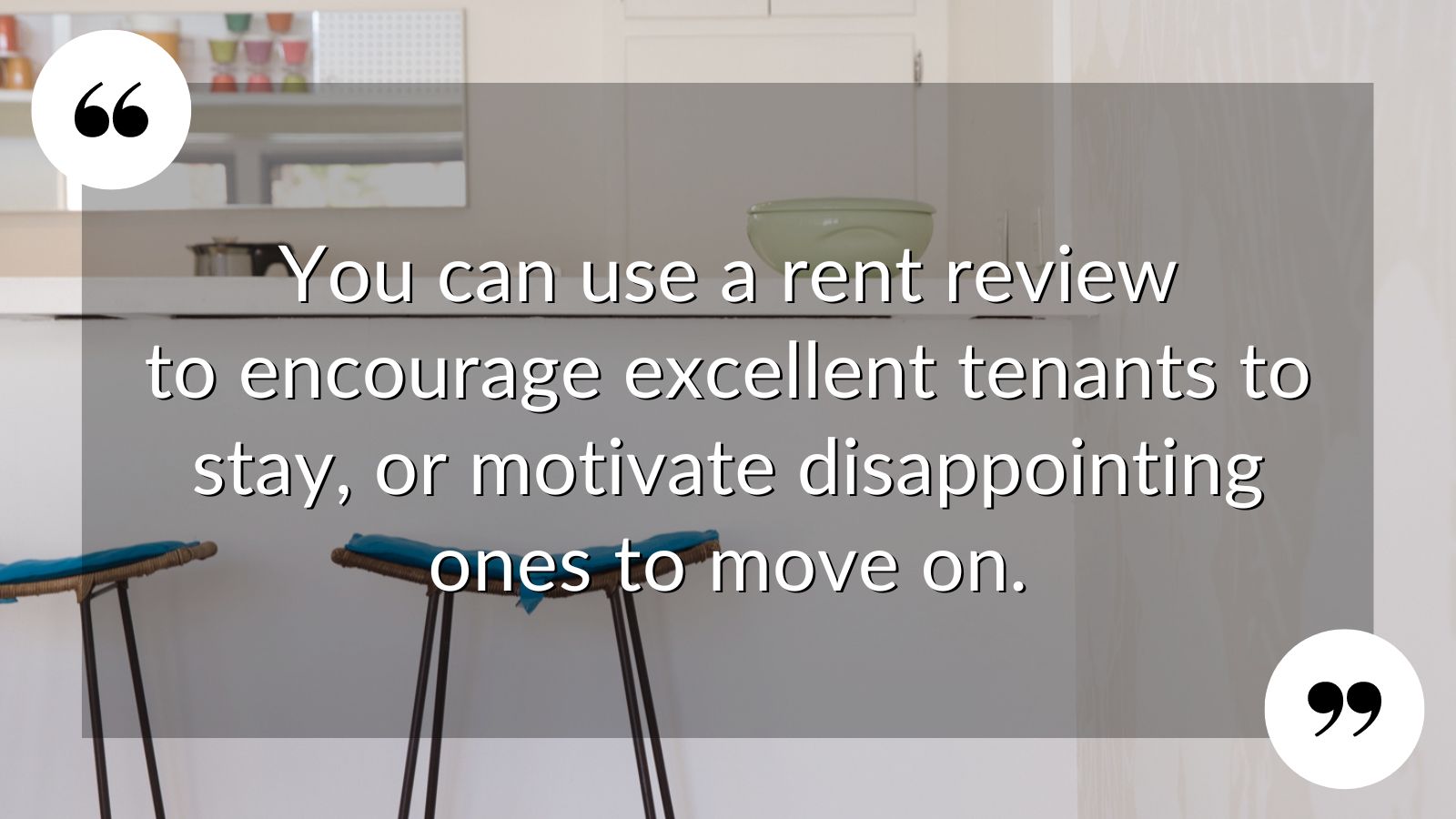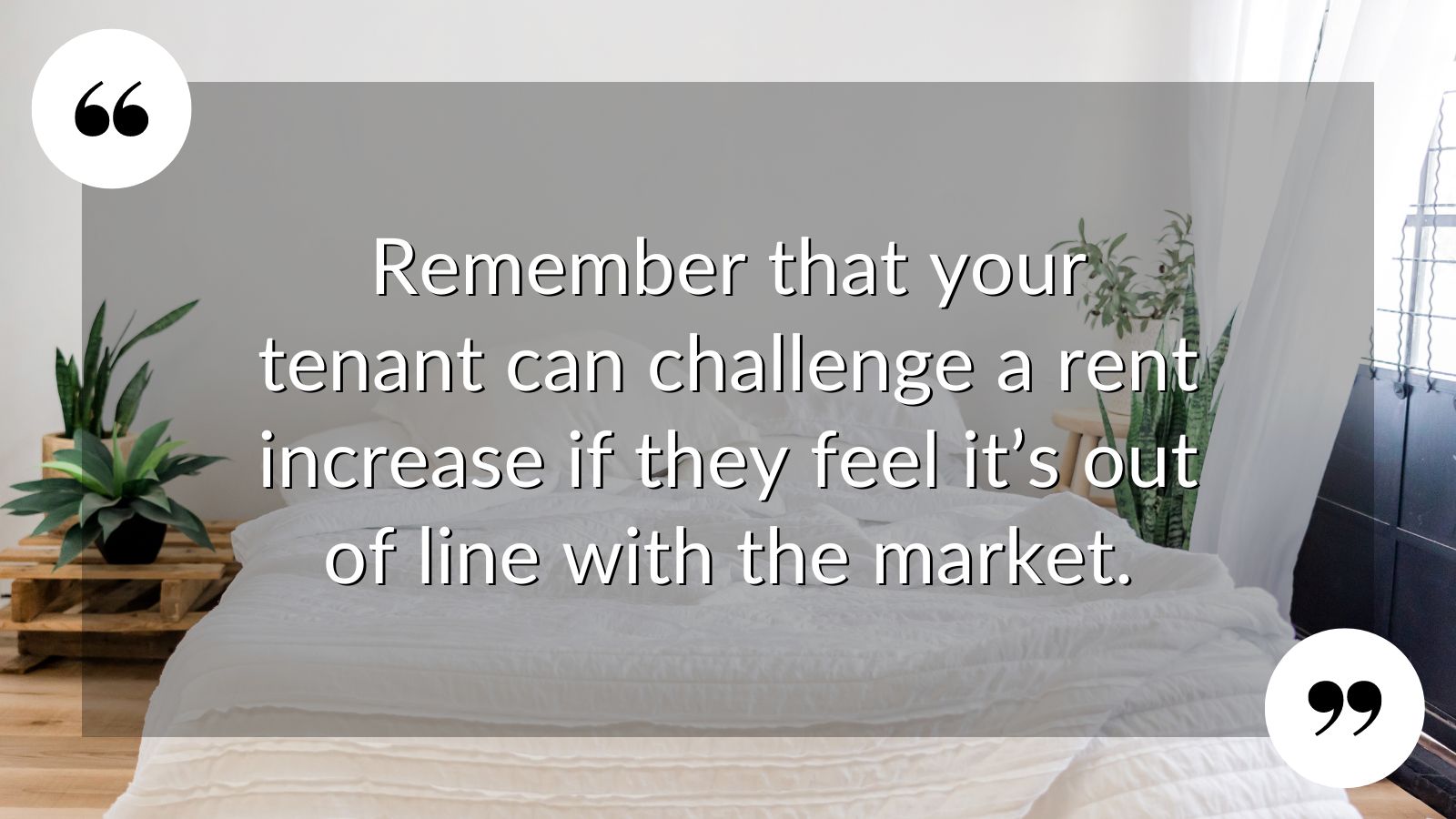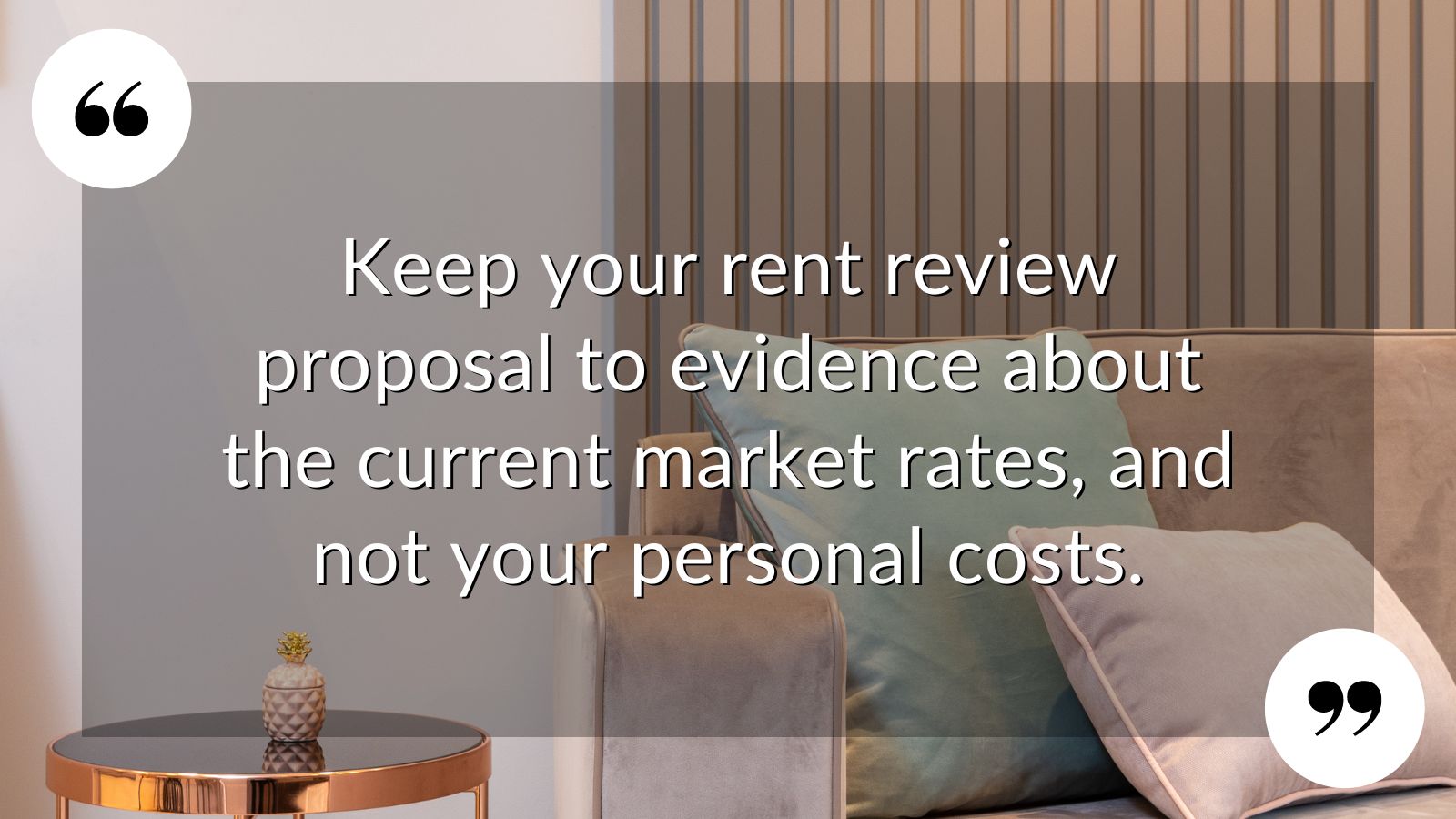Is there anything trickier than a rent review with a tenant you want to keep? It's little wonder so many landlords leave things as they are, no matter how far behind the market their income falls.
Eventually, though, an underperforming property can cause the landlord to sell up, resulting in a tenant losing their home and less available housing.
We want your property to stay in the local rental market and be a valuable long-term investment for your future, so it's a smart move to do a performance MOT each year, beginning with the following questions:
- How far has your property slipped behind current rental values?
- Why aren't you charging the full market rent?
- Is your tenant someone you want to keep?
- Where does the law stand on rent increases?
- How do you approach your tenant about putting up the rent?
With these questions answered and the expert tips right here in our guide, you can smoothly negotiate a new rent while keeping your treasured tenants happy and your business thriving.

HOW FAR IS YOUR PROPERTY BEHIND CURRENT RENTAL VALUES?
If you haven't increased the rent at your property for more than a year, you’re almost certainly getting less income than you could, so make some time for research and thinking about your next move.
- Speak to your letting or managing agent to see whether they feel an increase is due and how to go about it (it's possible your tenants may already be considering a move).
- Browse the property portals or websites of local letting agents to get an idea of how much rent similar homes to yours are getting.
- Be honest with yourself about how your property compares to the rest of the market and whether you've maintained it to a level that matches the top-performing homes.
Finally, remember to factor in the cost of finding new tenants, including referencing, agent’s fees and inventories, and a possible void period between tenancies: all these things need to be balanced.

WHY AREN’T YOU CHARGING THE FULL MARKET RENT?
Some rental homes fall behind their full income potential simply because the landlord doesn't think about increasing the rent, but others have more specific reasons.
Do any of these strike a chord?
- You have an excellent relationship with your tenant, or you're renting to friends, relatives, or another personal connection, and you feel uncomfortable about increasing the rent.
- You've agreed a lower rent in return for your tenant taking special care of your property (like keeping the garden beautifully manicured or looking after some of your belongings).
- Your property requires upgrades or refurbishment to match the higher rents being achieved by other homes that are more up-to-date.
Whatever the deal is at your property, what matters is having clarity over why the rent is below its full potential, and whether you feel rewarded enough to leave things alone, or if it's time to make a change.

IS YOUR TENANT SOMEONE YOU WANT TO KEEP?
More than ensuring your property remains a good investment, a rent review can incentivise excellent tenants to stay, and disappointing ones to move on. But what makes a truly great tenant?
Well, among the qualities that we look for and notice are people who:
- Care for your property, spot and raise potential issues early, and do little jobs without prompting, like changing cooker hood filters, cleaning bathroom extractors and maintaining gardens.
- Pay their rent on time, report problems politely, make interim inspections easy and rectify any accidental damages themselves as soon as they happen.
- Act as responsible residents and neighbours and don't leave you dealing with complaints about noisy, inconsiderate or inconvenient behaviour
Acknowledging the value of a tenant they want to keep, many landlords opt to set the new rent just below the full market rate, which is more than covered by avoiding the time and cost of finding a replacement.

WHERE DOES THE LAW STAND ON RENT INCREASES?
Depending on the location of your rental property in the UK and the status of the tenancy, you generally have three options for increasing the rent: mutual agreement, a rent-review clause, or serving notice.
There are also correct legal procedures to follow, and these are some of the most important points:
- If the tenancy is within an initial fixed term, you'll have to wait until it ends before you can increase the rent (unless an interim rent review clause is written in the agreement).
- Rent increases are normally limited to once a year, with an annual cap of 12% in Scotland and a slightly vague "fair and reasonable" requirement in England and Wales.
- Before the new rent can take effect, you must give your tenants written notice of at least one month in England and Wales, rising to three months in Scotland.
Remember that your tenant can legally challenge a rent review if they feel the increase is unfair or out of line with the local market, so make sure you have plenty of evidence for a watertight proposal.

HOW TO APPROACH YOUR TENANT ABOUT A RENT INCREASE
Although rent reviews can be tricky, it’s perfectly possible to keep hold of an excellent tenant at an increased rent if you plan things well, with an approach that looks something like this:
- Tell your tenants how much you appreciate them and that you'll continue maintaining your property to a high standard to give them years of comfort and enjoyment.
- Stick to logic and the reality of the current market with evidence of higher rents at similar properties that compare well in terms of location, size, style and specification.
- Keep the conversation away from your personal costs like mortgage repayments and tax bills, as these aren't relevant to a tenant or rental values.
Ultimately, our advice is to do whatever gives you peace and to remember that most tenants accept rent reviews as a part of life. They’re nothing to be ashamed of, and you can always negotiate!
Are you getting the correct rental income?
Finding the perfect balance between keeping your property occupied, popular and profitable is what we do, and if you own a rental home in the Wilton & Salisbury area, we'd love to do the same for you.
Call us on 01722 580059 or message us at info@piccoloproperty.co.uk for a chat with our team about successful rent reviews, your property’s full income potential, or anything else about landlord life.






Share this with
Email
Facebook
Messenger
Twitter
Pinterest
LinkedIn
Copy this link